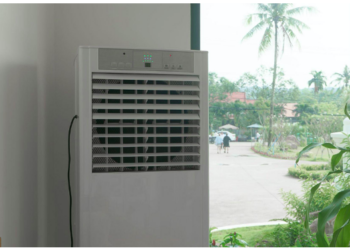Securing our health is one of the wisest investments we can make. Yet, with rising medical costs, we may need more than our basic health plan. Exploring options like Mediclaim and Super Top-up policies can supplement existing coverage and provide financial assurance.
Understanding these innovative health plans allows us to make informed choices about protecting our well-being. Now, let’s explore how these value-added covers can enhance our health insurance and give our family greater peace of mind.
An Overview of Mediclaim Insurance Policy
Mediclaim insurance policy protects against large medical bills. With healthcare costs rising, these plans bring financial safety for illness or accidents. Mediclaim works like a safety net – it covers hospitalisation expenses when we can’t afford treatment out-of-pocket. A suitable mediclaim means one less financial worry for the family when health takes priority.
Advantages of Having a Mediclaim Insurance Policy
- Mediclaim policies provide financial security when you fall ill and need hospitalisation. The policy covers hospital expenses, surgeries, diagnostics tests, etc., so you do not have to dip into personal savings or take loans while recovering.
- These policies make quality healthcare more affordable by facilitating access to reputed hospitals and healthcare providers. Many plans also cover outpatient department expenses and preventative health checks.
- The premium paid is eligible for tax deductions under section 80D. This dual advantage makes Mediclaim plans beneficial for both health and wealth.
- Some insurers offer a cumulative bonus, in which coverage increases yearly if you have a claim-free period. This encourages adopting healthier lifestyles.
- You can customise your Mediclaim policy with available add-ons to match specific requirements, from maternity needs to critical illness coverage.
An Overview of Super Top-up Health Insurance
Super Top up health insurance provides additional coverage when basic policy amounts are exhausted. These plans have a deductible – an amount you must pay out-of-pocket before the Super Top-up coverage starts. The key benefit is that Super Top-ups provide financial backup for big-ticket hospitalisation expenses not sufficiently covered by the base policy. They supplement regular health plans and protect against large medical shocks. Individuals can customise deductibles according to their base policy limits and risk appetite.
Advantages of Having Super Top-up Health Insurance
- Super Top-up policies provide high-sum insured options ranging from Rs. 25 lakhs to 1 crore or unlimited cover. This adequate coverage ensures minimal out-of-pocket expenses, even for extensive hospitalisations.
- Useful add-ons like outpatient department benefits, room rent waivers, etc., come included with the policy, unlike regular plans where you must pay extra. This increases the overall coverage at no additional cost.
- The high sum insured acts as critical illness cover as well, covering expensive treatments for major ailments like cancer, kidney failure, etc. Hence, a separate critical illness plan may not be required.
- These plans cover expenses incurred for multiple ambulance trips during each hospitalisation, unlike the single trip covered in most other health plans. This provides comprehensive coverage for medical emergencies.
Tips for Maximising Your Coverage
- Read the policy documents closely. Knowing what is not covered prevents unexpected costs down the road.
- Whether youngsters or seniors, our needs evolve. So, review your plans each year and switch things up if your existing cover needs to be improved.
- An ounce of prevention is worth a pound of cure! Take advantage of health checkups and OPD benefits.
- Some insurers reward you for healthy lifestyles with increased coverage. So quit smoking, stay active and reap those benefits.
Conclusion
Securing good health coverage is an investment in our family’s future. As we have seen, Mediclaim and Super Top-up policies work hand in hand to provide comprehensive protection against medical uncertainties. By understanding policy fine print, reviewing needs yearly, and adopting preventive care, we can optimise coverage and benefits.

















